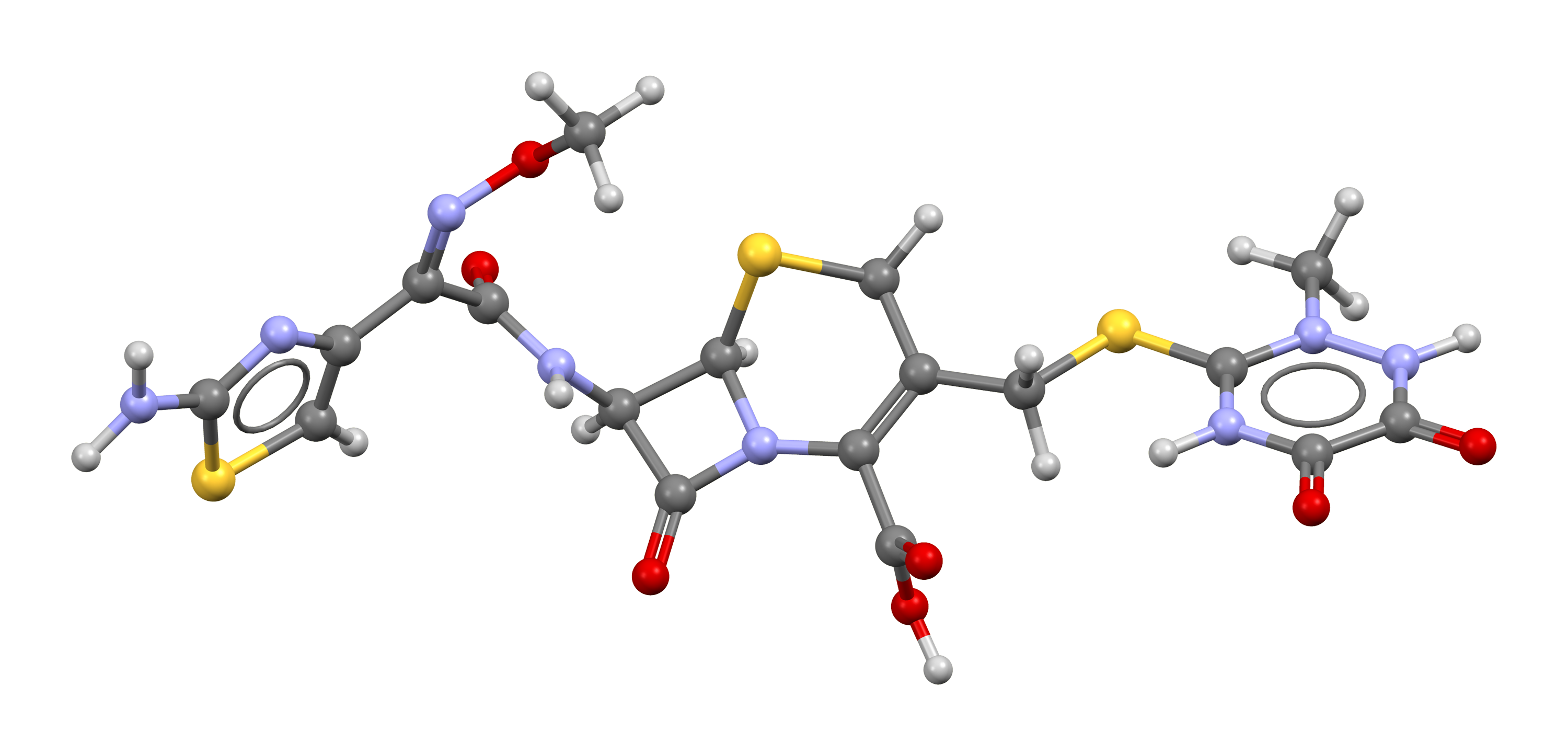| name | Ceftriaxone |
| classification | Third-generation cephalosporin antibiotic |
| pharmacokinetics | Ceftriaxone is a highly effective, broad-spectrum antibiotic administered intravenously or intramuscularly. It achieves high concentrations in various tissues and fluids, including cerebrospinal fluid (CSF), making it effective against infections in the central nervous system. Ceftriaxone has a long half-life, allowing for once-daily dosing in many cases. It is primarily excreted by the kidneys, and the half-life is influenced by renal function. |
| suggested dosage | | general | Dosage varies depending on the indication and severity of infection. Consult a physician for the appropriate dosage for individual patients, considering factors like age, weight, and the specific infection. | | examples | | 1 | | indication | Gonorrhea | | dose | 250 mg IV/IM once daily, or 1-2 g IM single dose |
| | 2 | | indication | Meningitis | | dose | 50-100 mg/kg/day IV in divided doses, or 2-4 g IV every 24 hours |
|
|
|
| indications | Ceftriaxone is used to treat a wide range of bacterial infections, including those of the urinary tract, respiratory system, skin, bones, central nervous system, and sexually transmitted infections like gonorrhea and syphilis. |
| safety in pregnancy | Ceftriaxone is generally considered safe for use in pregnancy, especially during the third trimester. However, its use in early pregnancy requires careful consideration by the physician due to potential risks. Consult a doctor before use during pregnancy. |
| safety in breastfeeding | Limited data is available about Ceftriaxone excretion in breast milk. Ceftriaxone may pass into breast milk. The use of Ceftriaxone in breastfeeding mothers requires careful consideration of potential benefits and risks for both the mother and infant. Consult a healthcare professional for advice. |
| side effects | | 1 | Nausea | | 2 | Vomiting | | 3 | Diarrhea | | 4 | Abdominal pain | | 5 | Headache | | 6 | Fever | | 7 | Rash | | 8 | Allergic reactions (including anaphylaxis) | | 9 | Blood disorders (rare) | | 10 | Sepsis |
|
| alternatives | |
| contraindications | | 1 | Known hypersensitivity to cephalosporins or penicillins | | 2 | Severe hepatic impairment | | 3 | Severe renal impairment (dose adjustments may be necessary) |
|
| interactions | | 1 | Some drugs can alter the renal excretion of Ceftriaxone. Consult with a physician if taking other medications. |
|
| warnings and precautions | Monitor renal function, especially in patients with pre-existing kidney disease. Take appropriate precautions for patients with a history of allergies or hypersensitivity. Monitor for signs and symptoms of adverse effects. |
| additional informations | Ceftriaxone is typically administered as a single dose or in divided doses daily. Patients should follow their physician's instructions carefully. Always inform the doctor about all current medications and health conditions before starting treatment. |

